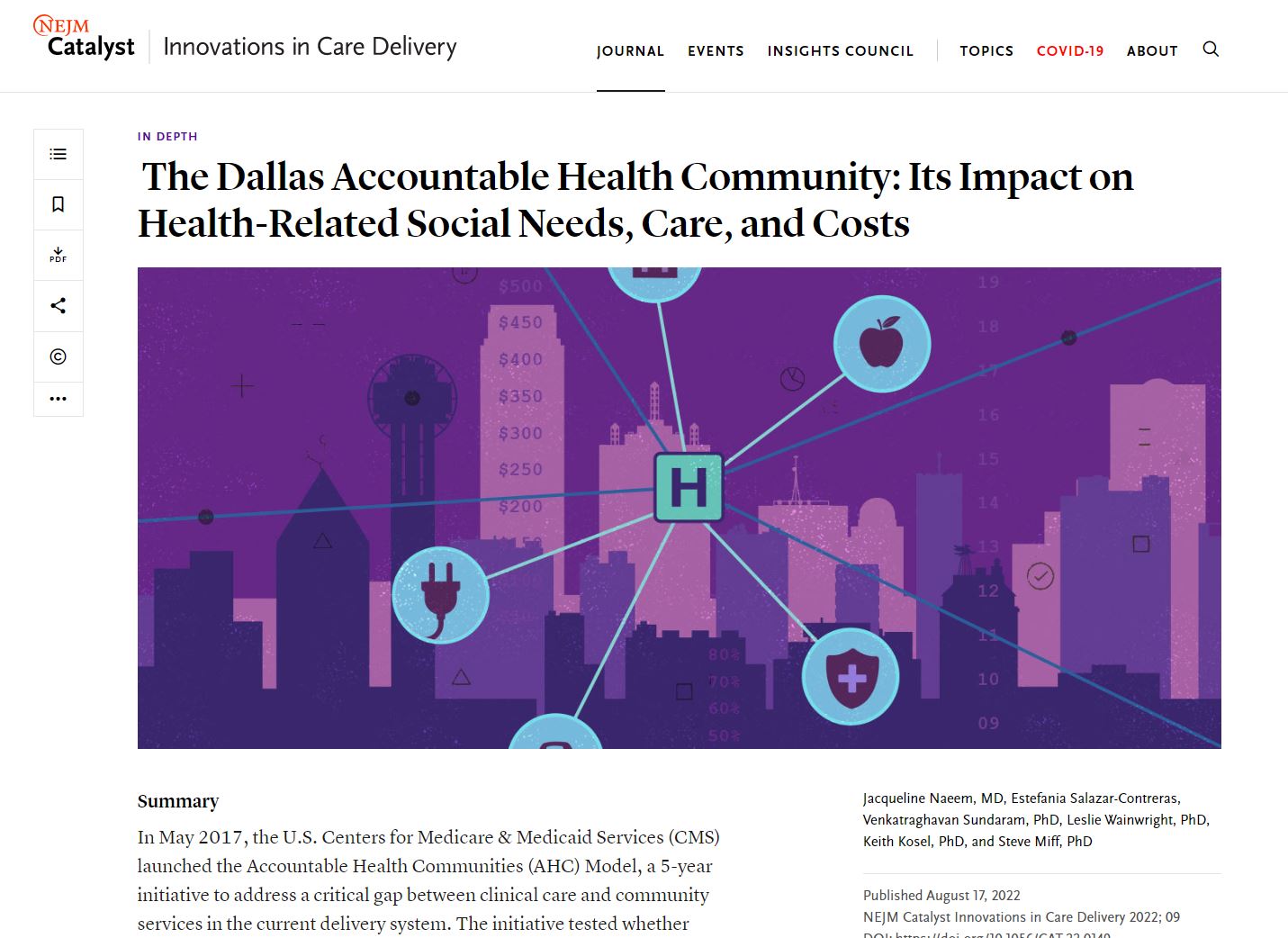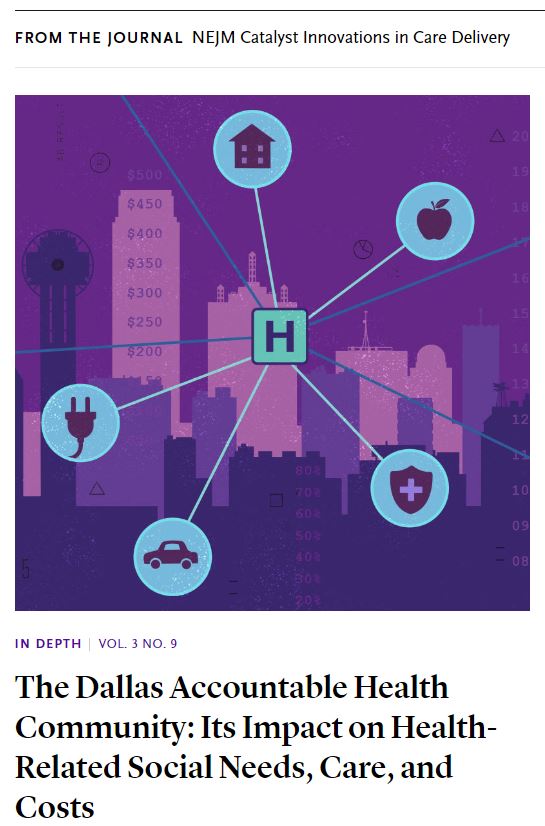Accountable Health Communities

Through the Accountable Health Communities*,
proving that identifying and addressing a
patient’s health-related social needs through
cross-sector collaboration and patient
navigation DOES make a difference
In 2022, we concluded the CMS Accountable Health Communities (AHC) Model, a five-year initiative to test whether systematically identifying and addressing health related social needs (HRSNs) of Medicare and Medicaid beneficiaries (housing instability and quality, food insecurity, utility needs, interpersonal safety, and transportation) through screening, referral, and community navigation would reduce utilization and reduce inpatient and outpatient utilization.
Bridge organizations (such as PCCI) served as ‘hubs’ in their communities, forming partnerships with their state Medicaid Agencies, local clinical delivery sites (such as Parkland, our largest site), and community service providers to conduct HRSN screenings, navigate beneficiaries to community service providers in their communities, and align model partners to optimize community capacity to address the HRSNs. PCCI partnered with 17 clinical sites, representing the region’s top healthcare providers (e.g., Parkland) and more than 100 local community-based organizations (CBOs) to establish the Dallas Accountable Health Community (DAHC).
The DAHC program demonstrated a positive impact on healthcare outcomes for some of Dallas County’s most vulnerable residents. Given the positive results, immediately following the conclusion of the CMS initiative and in collaboration with Parkland, we launched a new program, AHC-Uninsured, to extend/expand screening and navigation to include Parkland’s uninsured population. Data obtained through AHC reinforced the higher rate of vulnerable individuals constituting the Parkland community and their multiplier impact on overall utilization.
For example, based on AHC and other studies’ data, we know that individuals who are food insecure patients are 2.4x more likely to report multiple ED visits and those that are transportation challenged are 2.2x more likely to report an inpatient stay. The ability to address SDOH in Parkland’s uninsured population could have a meaningful impact on both outcomes and utilization.
*This project was supported by the Centers for Medicare and Medicaid Services (CMS) of the U.S. Department of Health and Human Services (HHS) as part of a financial assistance award totaling $4.5M with 100 percent funded by CMS/HHS. The contents are those of the author(s) and do not necessarily represent the official views of, nor an endorsement by, CMS/HHS or the U.S. Government. Although PCCI’s participation in the AHC Model is now over and CMS is no longer affiliated, we are continuing aspects of the program established during our participation in the Model.
BLOG: Community Health Workers Are Key in Building a Connected Community of Care
VIDEO: Managing the Dallas Accountable Health Communities Model




